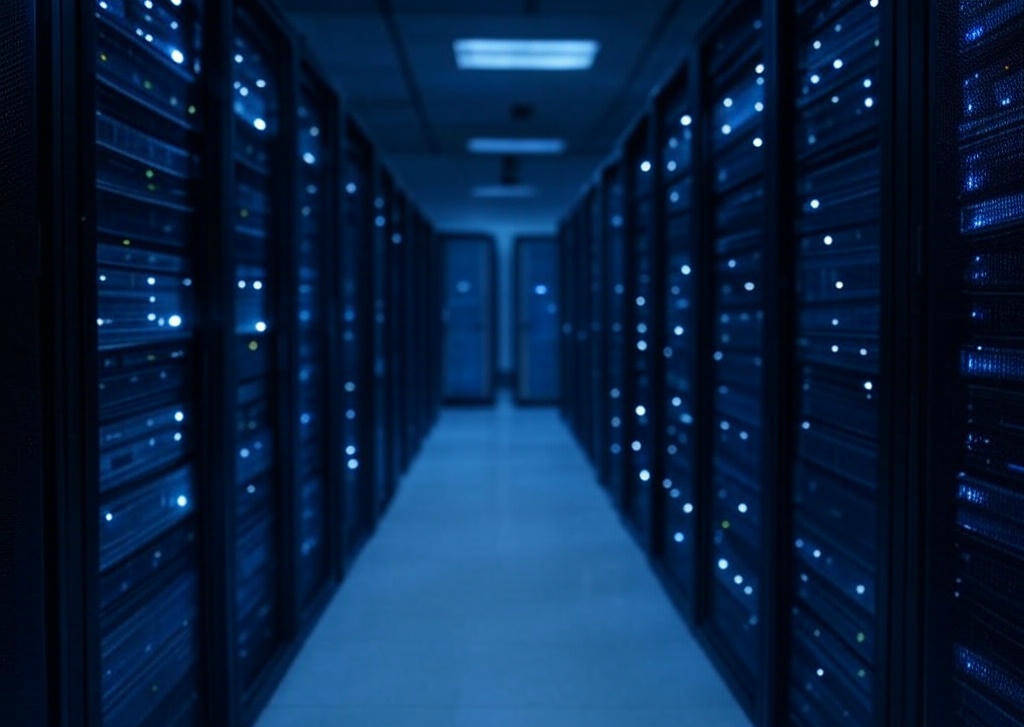The artificial intelligence revolution is transforming industries at a breakneck pace. From sophisticated machine learning models to large language models and computer vision systems, AI workloads are becoming increasingly compute-intensive, driving unprecedented demand for high-density data center infrastructure.
At IDACORE, we've purpose-built our Idaho data center to accommodate the unique requirements of these next-generation AI workloads. In this article, I'll explore the critical infrastructure considerations for AI colocation and explain why our Idaho facility offers distinct advantages for organizations looking to optimize their AI operations.
The Unique Demands of AI Infrastructure
Traditional enterprise workloads typically require 3-5 kW per rack. In stark contrast, modern AI infrastructure—particularly systems leveraging GPUs, TPUs, and other specialized accelerators—can demand anywhere from 15 kW to upwards of 50 kW per rack.
This exponential increase in power density creates several critical infrastructure challenges:
1. Power Delivery
AI infrastructure requires robust power delivery systems capable of handling sustained high loads. Unlike traditional workloads that might experience fluctuating power consumption, AI training runs often operate at peak capacity for extended periods—days or even weeks at a time.
IDACORE's Idaho data center features:
- N+1 redundant power systems with UPS backup
- Direct access to hydroelectric power sources, providing both sustainability and cost advantages
- Redundant power paths to each rack, ensuring uptime even during maintenance
- Busway power distribution systems capable of delivering up to 50 kW per rack
"The limiting factor for most AI deployments isn't compute capacity—it's power delivery. IDACORE's Idaho facility was designed from the ground up to address this core constraint."
2. Cooling Efficiency
With increased power consumption comes substantially greater heat generation. Cooling high-density AI racks efficiently requires advanced thermal management solutions that go well beyond traditional data center HVAC systems.
Our Idaho data center leverages several advantages:
- Idaho's naturally cool climate enables economizer-mode cooling for approximately 85% of the year, dramatically reducing energy consumption
- In-row cooling systems that provide targeted cooling exactly where it's needed
- Hot-aisle containment to prevent the mixing of hot and cold air, maximizing cooling efficiency
- Liquid cooling infrastructure to support the highest-density deployments (up to 100 kW per rack)
The combination of Idaho's climate and our advanced cooling systems results in a remarkably low Power Usage Effectiveness (PUE) of 1.15, compared to the industry average of 1.57.

3. Network Throughput
AI workloads—particularly distributed training operations—generate immense amounts of east-west network traffic between compute nodes. This requires a high-bandwidth, low-latency fabric that minimizes training times and maximizes efficiency.
IDACORE's network infrastructure features:
- Non-blocking, fully redundant 400 Gbps network fabric
- Support for RoCE (RDMA over Converged Ethernet) for near-bare-metal performance
- GPUDirect RDMA compatibility for direct GPU-to-GPU communication
- Minimal oversubscription, ensuring consistent performance even under peak load
This network architecture provides the foundation for efficient distributed training across hundreds or even thousands of GPU nodes.
The Economic Advantage of IDACORE for AI Colocation
AI infrastructure's extreme power demands make electricity costs a primary consideration for organizations deploying substantial AI resources. IDACORE's Idaho location provides a dramatic economic advantage in this respect.
Electricity Cost Comparison
Consider a modest AI deployment of 10 racks at 20 kW per rack:
- Silicon Valley: 200 kW × $0.17/kWh × 730 hours = $24,820 per month
- Northern Virginia: 200 kW × $0.08/kWh × 730 hours = $11,680 per month
- IDACORE Idaho: 200 kW × $0.05/kWh × 730 hours = $7,300 per month
The annual savings compared to Silicon Valley amount to over $210,000—sufficient to fund significant additional compute capacity.
Total Cost of Ownership Analysis
When we factor in cooling efficiency gains from Idaho's climate and our purpose-built infrastructure, the TCO advantage becomes even more substantial:
- Lower cooling costs due to free-air economization
- Reduced capital expenditure for on-premise cooling infrastructure
- Extended hardware lifespan due to optimized operating conditions
- Streamlined remote management through IDACORE's purpose-built portal
For many of our clients, the total savings exceed 40% compared to premium urban data centers—a competitive advantage that directly impacts their ability to scale AI operations.
Real-World AI Colocation Case Studies
Case Study: Biotech AI Research Firm
A leading biotech firm conducting protein folding research deployed a cluster of 32 servers, each with 8 NVIDIA A100 GPUs, at IDACORE's Idaho facility. Their requirements included:
- 35 kW per rack power density
- Direct liquid cooling for GPUs
- 400 Gbps interconnect between compute nodes
- Substantial storage capacity for research datasets
By selecting IDACORE over their previous Silicon Valley provider, they achieved:
- 62% reduction in monthly power costs
- 15% improvement in training throughput due to our optimized network fabric
- The ability to expand their cluster by 40% within the same budget constraints
Case Study: AI-Enhanced Financial Services
A financial services firm utilizing AI for algorithmic trading and risk assessment deployed a hybrid infrastructure that combined high-performance compute with low-latency connectivity to financial exchanges. Their deployment featured:
- Mixed CPU and GPU compute nodes
- Tiered storage architecture
- Direct connectivity to major financial exchanges
- Strict compliance and security requirements
By choosing IDACORE, they were able to:
- Reduce infrastructure costs by 37% compared to their previous East Coast provider
- Maintain the required sub-20ms latency to key financial exchanges
- Scale their AI training environment without compromising their inference platform
Future-Proofing: AI Colocation for the Next Generation
The trajectory of AI infrastructure is clear: increasing power density, more specialized accelerators, and growing demand for efficient cooling solutions. IDACORE's Idaho data center is positioned to accommodate these evolving requirements.
Next-Generation AI Hardware Support
Our facility is already equipped to support upcoming technologies such as:
- Direct liquid immersion cooling for ultra-high-density deployments
- 800 Gbps networking fabric for next-generation interconnects
- Advanced power delivery systems capable of supporting 100+ kW per rack
- Modular infrastructure that can adapt to changing form factors and thermal profiles
Sustainability Considerations
As AI energy consumption continues to rise, sustainability becomes increasingly important. IDACORE's advantages include:
- 100% renewable energy from Idaho hydroelectric sources
- Industry-leading PUE minimizing the environmental impact of operations
- Water-efficient cooling designs that conserve this critical resource
- Responsible hardware lifecycle management and recycling programs
Conclusion: The IDACORE Advantage for AI Colocation
The AI revolution demands infrastructure that can deliver exceptional power density, efficient cooling, and high-performance networking—all while maintaining cost-effectiveness and sustainability. IDACORE's Idaho data center meets these challenges through purpose-built design, strategic location advantages, and a deep understanding of AI workload requirements.
For organizations looking to scale their AI operations, the advantages of high-density colocation at IDACORE include:
- Substantial cost savings through reduced power expenses
- Advanced cooling infrastructure optimized for Idaho's climate
- Purpose-built networking for AI's unique traffic patterns
- Sustainable operations powered by renewable energy
- Scalable infrastructure that can grow with evolving AI requirements
As the AI landscape continues to evolve, the infrastructure supporting these critical workloads must evolve as well. At IDACORE, we're committed to remaining at the forefront of high-density colocation, ensuring our clients have the foundation they need to drive AI innovation for years to come.
Explore High-Density AI Colocation Options
Ready to optimize your AI infrastructure with IDACORE's purpose-built high-density colocation services? Contact our team to discuss your specific AI compute requirements and arrange a facility tour.
Contact Us

